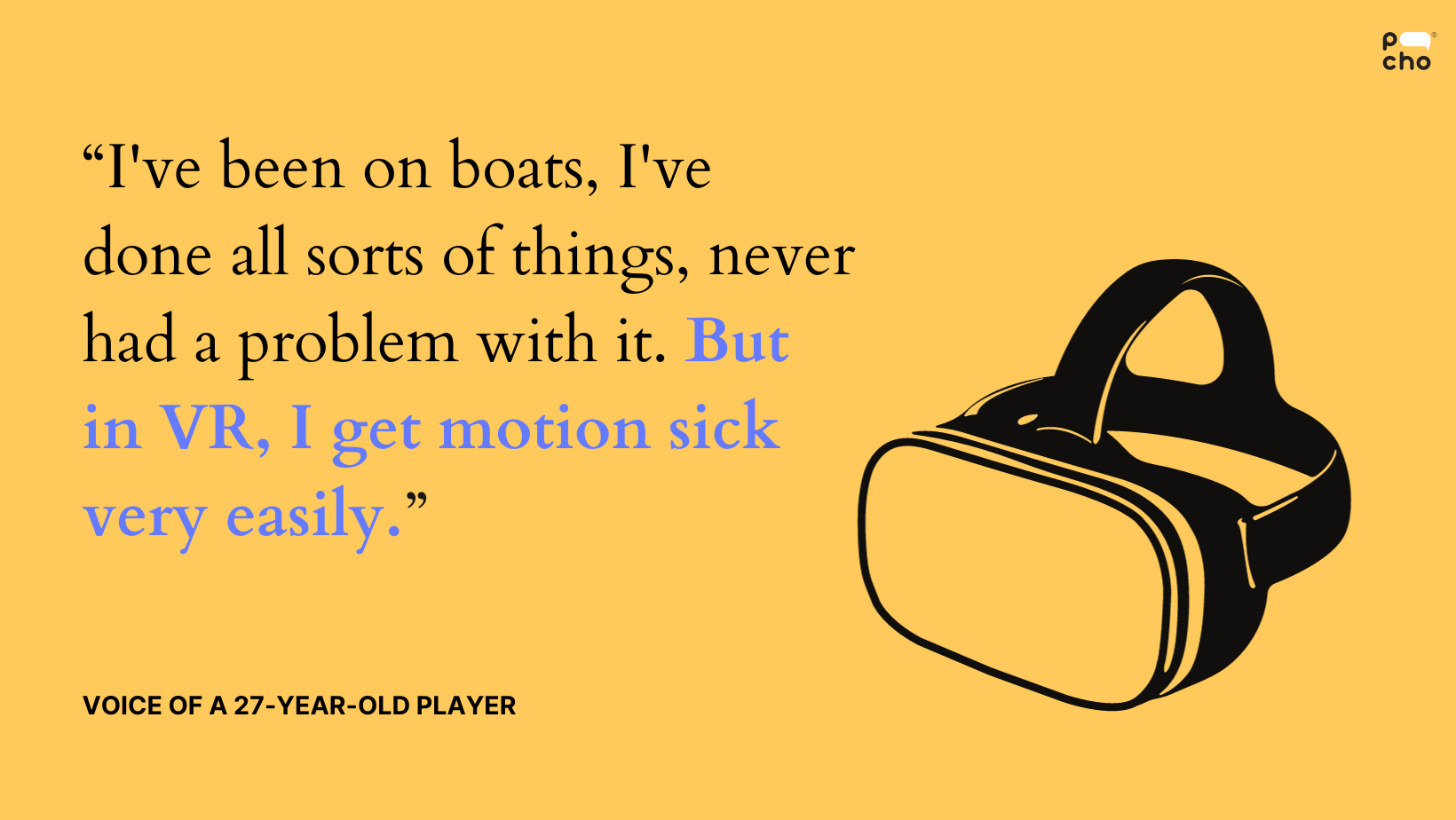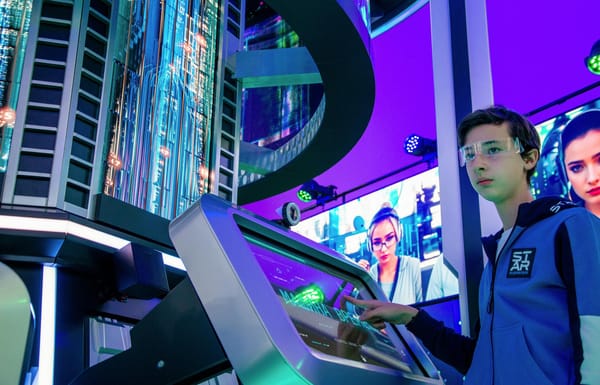💬How does this young engineer use VR to stay fit?
Rachel Johnson, a young software engineer discusses her love for virtual fitness games which help her stay active and relieve stress.

Written by: Ananya Mavinkurve
Rachel Johnson* is a computer programmer who seeks respite from her sedentary desk job in New York City, and the monotony of daily life, through VR gaming. Using her HTC Vive to beat boredom and meet her fitness goals simultaneously, she enjoys playing sports-based games such as Box VR and table tennis. She says that fitness VR games allow her to relieve stress and get a good daily workout in.
- Software engineer at a fintech startup
- 24 years old
- Living alone
Destressing & escaping a sedentary lifestyle
Working as an engineer means that Rachel spends most of her day glued to her desk, coding away. After a long and tiring day of work, she often finds herself switching on her HTC Vive in order to decompress.
She finds that VR gaming offers her the perfect mix of mental and physical stimulation to unwind and get her mind off work in the evenings. She really enjoys this opportunity to get moving in the comfort of her own home – “It mainly is a way to de-stress, I would normally play it after work. When I'm working, I'm sitting down in a single spot all day and being able to move around, but still be in my apartment and not have to go to the gym or sort of remove myself is a big plus," says Rachel.
The benefit of stress relief that Rachel is alluding to is a very common motivating factor for VR enthusiasts everywhere – getting lost in an exciting virtual reality experience, be it a game or a workout, as a common way to relieve tension. However, companies such as Relax VR are taking it a step further by creating experiences aimed at improving well-being and stimulating the auditory and visual components of relaxing natural environments, for people living in sprawling urban environments who cannot easily gain access to nature in the day-to-day. Fascinating, isn’t it?
Working women are reshaping the VR market
Rachel pushes herself to stay active and fit in spite of her desk-bound lifestyle, and some of her hobbies outside of gaming include running and rock climbing. Rachel professes that her biggest use case for her HTC headset is in fact the fitness games that she loves to play.
She says, “I feel better when I'm exercising on a regular basis and I sleep better. But I don't want to go to the gym and run for an hour or lift weights. I find that to be very boring. So having a video game…having fitness designed around a video game was a lot more engaging to me because I love games, I want to stay fit. This seems like the best of both worlds to me personally.”
She is part of a large swath of women whose fitness pursuits have slowly been transforming the VR space, previously dominated almost exclusively by gaming enthusiasts.
While the target audience for VR gear is largely pictured as young and male, the Washington Post reports that a big chunk of the audience is now working women, looking for a fun and engaging way to workout in the comfort of their own homes! VR companies across the map have made note of these developments in the space and worked to integrate fitness and exercise based apps into their virtual reality offerings, to ensure that their users truly do get the “best of both worlds!”
VR is not a perfect solution (yet!)
VR seems like a dream come true for the homebodies out there with a desire to stay active and entertained without leaving their comfort zones (literally). However, like any burgeoning tech solution, it is not devoid of problems.
For one, many consider the headsets and other equipment to be prohibitively expensive, as spatial computing technology is still developing and has not achieved its full potential yet. Furthermore, space is a massive constraint for VR gamers, especially those like Rachel who are playing from smaller homes in bigger cities.
What holds Rachel back from devoting more time to her gaming pursuits are the physical repercussions that she faces after a couple hours with the headset on, such as headaches and motion sickness – in fact, this is her biggest complaint – “I've been on boats, I've done all sorts of things, never had a problem with it. But in VR, I get motion sick very easily.” That, along with the lack of variety in fitness-based games are her biggest qualms.
With tech giants like Apple and Meta tinkering with the technology and introducing their own headsets, can we expect them to perfect the VR experience and do away with these pain points? Only time will tell.
*We anonymize participant names to protect their identities and encourage more honest dialogue.



